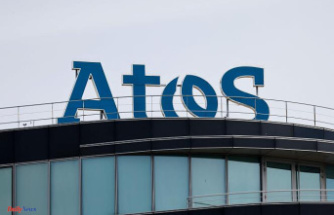Bang with announcement: In the collective bargaining for around 180,000 railway employees, the EVG union had threatened a strike before the start if the company did not submit an offer. And the group actually owes this at the start.
The first wage round between Deutsche Bahn and the railway and transport union (EVG) was canceled shortly after it started. The state-owned company refused to submit a written offer and was thus provoking warning strikes, the EVG criticized after the end of the talks in Fulda. "I find it more than amazing that Deutsche Bahn is already swearing its passengers into warning strikes before we have even negotiated with each other for a minute," said EVG negotiator Kristian Loroch.
Bahn HR Director Martin Seiler countered that the escalation in the first of four agreed rounds was absolutely unnecessary. "We want to negotiate seriously and find solutions at the negotiating table, and that's what we expect from the EVG." On March 14th we had to speak again.
EVG negotiator Loroch warned: "Obviously the company has no interest whatsoever in reaching a deal at the negotiating table, but is deliberately provoking a labor dispute." Otherwise he could not explain the destructive behavior of the railway negotiations. The railway must now use the next few weeks for constructive suggestions.
EVG Vice Cosima Ingenschay emphasized that they would only return to the negotiating table once Deutsche Bahn had submitted an offer. "We will not go on strike tomorrow, we are always ready to negotiate." Strike is the ultima ratio, added ECG expert Loroch.
The union's tough action comes with an announcement: "We don't have time for collective bargaining," negotiator Ingenschay said earlier this month. If there is no offer at the start, there will be a strike, added co-negotiator Kristian Loroch.
The EVG demands twelve percent more wages, but at least 650 euros more per month. For most Deutsche Bahn employees, this means a greater increase than the twelve percent required for a period of twelve months. According to the EVG, it is negotiating for around 180,000 DB employees. In March, further rounds of collective bargaining will take place with smaller railway companies with a total of 50,000 employees. The same requirements apply to them.












